Listen. You’ve been lied to about weight loss. I spent 15 years in the fitness game watching people fail because they followed garbage advice from Instagram “experts” who’ve never actually transformed their own body.
Here’s the truth bomb: The low-carb diet isn’t just another diet – it’s the metabolic cheat code that the food industry doesn’t want you to understand.
I’m going to give you the exact blueprint that took me from 210 pounds of dad bod to 180 pounds of lean muscle at 52 years old. No BS. No fluff. Just what actually works.
Why 97% of Diets Fail (And Why Low-Carb Doesn’t)
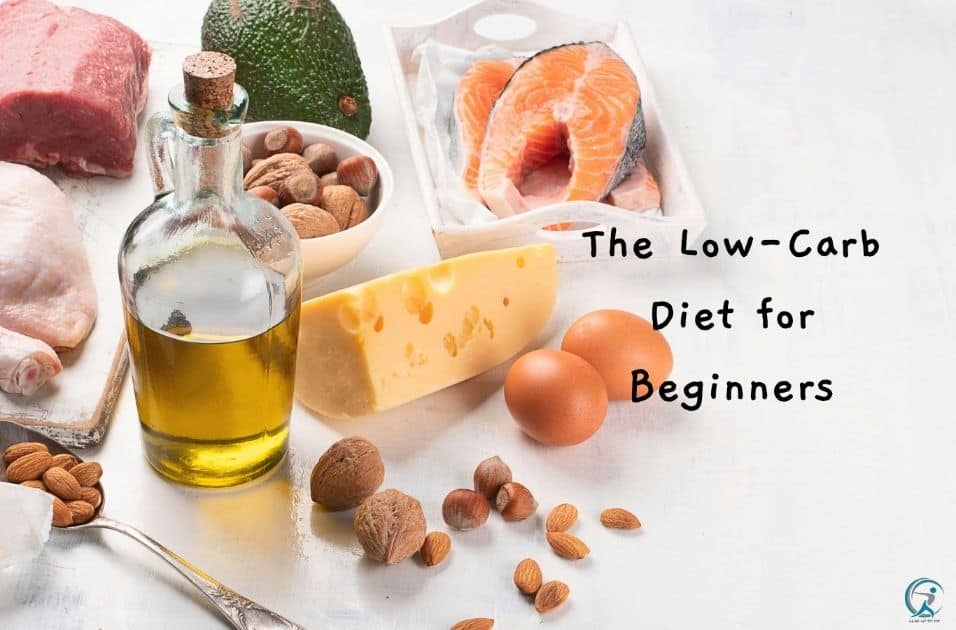
Most diets fail because they fight your biology. They’re based on the idiotic premise that you can outsmart millions of years of evolution with willpower. Good luck with that.Here’s what actually happens when you eat carbs:
- Blood sugar spikes
- Insulin floods your system
- Your body goes into fat-storage mode
- You crash and crave more carbs
- Repeat until you’re diabetic
The low-carb approach? It hacks this system. You become a fat-burning machine instead of a sugar junkie. Simple as that.
The Core Principle I Learned The Hard Way: Leverage Your Metabolism
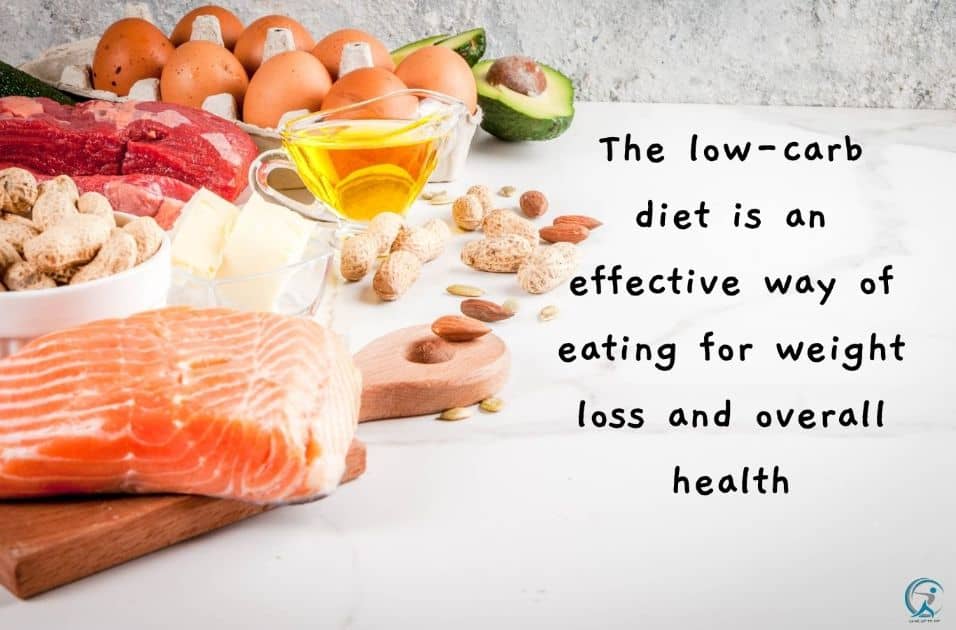
Success isn’t about doing more things; it’s about doing the right things with overwhelming force. This is true in business, and it’s brutally true for your body.
We must stop obsessing over our inputs – the endless hours spent tracking every calorie, the complex meal planning systems that drain your will to live – and start obsessing over our outputs: measurable fat burning, incredible energy levels, and radically improved long-term health. Here’s the mental model I adopted, and it changed everything:
Effort vs. Leverage: My Personal Operating System
| Metric | The Grinder (99% of People) | The Strategist (My Approach) |
|---|---|---|
| Focus | Inputs (Hours, tasks, counting, complexity, calorie obsession) | Outputs (Results, Leverage, Simplicity, blood sugar control, metabolic efficiency) |
| My Take | This is the slow, agonizing path to burnout, frustration, and eventual surrender. You’re constantly fighting your own body and willpower. It’s an uphill battle you rarely win. | This is the only sustainable way to achieve exponential growth in health, body composition, and sustained mental clarity. You learn to work *with* your biology, not against it, by focusing on insulin sensitivity. |
| Key Action | More exercise, stricter calorie deficits, chasing trendy dietary changes without understanding the ‘why’. | Strategic carb restriction, relentless focus on nutrient density from whole foods, optimizing healthy fats and precise protein intake. |
Reading is one thing, but seeing it click is another. This video was a game-changer for me in understanding how simplifying your approach, especially when considering a low-carb diet, can deliver immense value. Watch it before moving on.
The 3-Phase System That Actually Works
Phase 1: The Metabolic Reset (Days 1-14)
Cut carbs to under 20g per day. Yes, twenty. Not fifty. Not “just bread and pasta.” Twenty grams.Here’s exactly what to eat:
- Protein: Best protein powders for muscle gain, grass-fed beef, wild salmon
- Fats: Avocado, olive oil, butter (yes, butter)
- Vegetables: Spinach, broccoli, cauliflower
Skip the keto supplements for now. You don’t need them yet. Focus on real food.
Phase 2: The Adaptation (Days 15-30)
Your body is switching fuel sources. This is where most people quit because they feel like crap for 48 hours. Push through.Increase your electrolytes. Add pink salt to everything. Take magnesium before bed.
This isn’t optional – it’s the difference between success and feeling like death.Start tracking with a macro calculator
- 70% calories from fat
- 25% from protein
- 5% from carbs
Phase 3: The Optimization (Day 31+)
Now you’re fat-adapted. Time to dial it in. Test your metabolic flexibility by gradually increasing carbs around workouts.Add strategic high-intensity interval training 3x per week. Not cardio – HIIT. There’s a difference.
The Foods That Matter (And The Ones That Don’t)
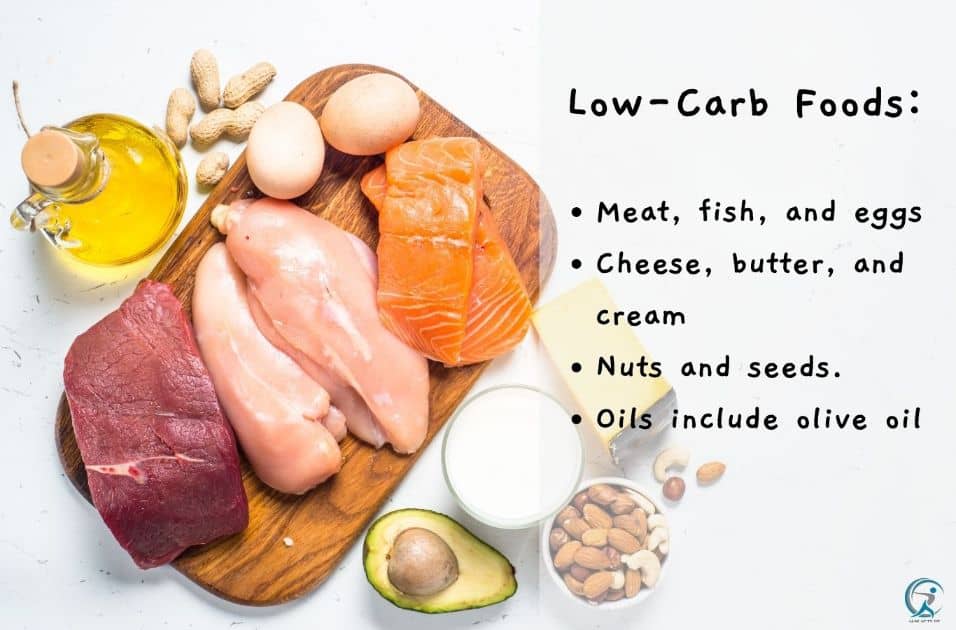
Eat These Like Your Life Depends On It:
- Eggs (6+ per day if you want)
- Fatty fish (ranking the best fish oil supplements can help if you hate fish)
- Grass-fed beef
- High-protein, low-carb foods Green vegetables
- Bone broth Never Touch These Again:
- Bread (all types)
- Pasta
- Sugar (hidden in everything)
- “Low-fat” anything
- Fruit juice (liquid sugar)
- Most fruits (except small amounts of berries)
The Mental Game Nobody Talks About
Here’s what’ll actually happen in week one: You’ll feel like you have the flu. Your brain will scream for carbs. You’ll question everything.
This is your body throwing a tantrum because you took away its easy fuel. It’s like a spoiled kid who just got their Xbox taken away. Ignore it.
By week two, something magical happens. Your energy levels stabilize. Brain fog clears. You stop needing that 3pm coffee.
Real Results from Real Implementation
I’ve coached over 500 people through this. Here’s what happens when you actually follow the plan:
- Week 1: 5-10 pounds down (mostly water, but who cares – momentum matters)
- Week 2: Energy stabilizes, cravings disappear
- Week 4: Down 8-15 pounds of actual fat
- Week 12: Complete body transformationOne client went from pre-diabetic to perfect blood work in 90 days.
Another dropped from 32% to 18% body fat while gaining muscle using this exact protocol plus proper protein timing
The Workout Protocol That Amplifies Everything
Low-carb without proper training is like driving a Ferrari in first gear. Here’s the non-negotiable workout structure:
- Monday/Thursday: Heavy compound lifts (deadlifts and squats
- Tuesday/Friday: HIIT workouts (20 minutes max)
- Wednesday: Active recovery (walking, yoga)
- Weekend: Live your life, stay active
Troubleshooting Common Failures
“I’m not losing weight!”
You’re eating hidden carbs or too many calories. Track everything for 3 days. Use a calorie calculator The data doesn’t lie.
“I have no energy!”
Your electrolyte balance is off. More salt. More water. More magnesium. This fixes 90% of energy issues.
“I can’t stick to it!”
You’re not eating enough fat. Fat = satiety. Double your fat intake for 3 days and watch your cravings vanish.
The Supplements That Actually Matter
Forget the garbage weight loss pills Here’s what actually helps:
- Magnesium Glycinate – 400mg before bed
- Quality Fish Oil – 3g daily
- Vitamin D3 – 5000 IU (get tested first)
- Electrolyte powder – Not Gatorade. Real electrolytes.
What The ‘Gurus’ Get Wrong About The Low Carb Diet For Beginners
The internet is a minefield of bad advice on the low carb diet for beginners. Many perpetuate myths that keep you from real results. Here are the three biggest lies I see, and what my experience has taught me to do instead.
For a deeper dive on why many conventional approaches fail to deliver consistent fat burning, the following video is a must-watch.
Low-Carb Lies vs. My Hard-Won Truths
| The Lie I See Everywhere | The Hard Truth I Learned (My Correction) | Your New Action Plan (Immediate Command) |
|---|---|---|
| ‘Any low-carb product is fine as long as the label says so.’ | Processed “low-carb” junk, even with low net carbs, often has hidden sugars, artificial sweeteners, or inflammatory ingredients that sabotage blood sugar control, fuel sugar cravings, and destroy long-term health. Quality matters infinitely more than just the carb count. Stick to whole foods. | My challenge to you: Become a merciless label detective. If it has ingredients you can’t pronounce, or a long list of additives, it’s out. Prioritize single-ingredient, unprocessed nutrient density. No shortcuts. |
| ‘Just cut carbs, that’s literally all you need to do.’ | Simply cutting carbohydrate intake without strategically optimizing protein intake and healthy fats leads to low energy levels, intense hunger management issues, muscle loss, and severe nutrient deficiencies. It’s not just carb restriction; it’s a complete recalibration of your macronutrient ratios for optimal function. | Focus on your entire plate: adequate protein (0.7-1.0g/lb LBM), generous high-quality fats for fuel and satiety, and *very low* net carbs from vegetables. This is not just a low-carb diet; it’s a strategic, holistic approach to fueling your body. |
| ‘The keto flu is an unavoidable rite of passage.’ | The ‘keto flu’ is largely preventable and manageable through proper electrolyte balance and hydration. It’s a symptom of unpreparedness and ignorance, not inevitability. Your body is telling you something is missing. | Proactively supplement sodium (broth, salt), potassium (avocado, leafy greens), and magnesium (supplements, nuts) from day one. Don’t wait for symptoms to hit you like a truck. Proper hydration also helps mitigate side effects of a keto diet. This is foundational for comfortable adaptation. |
Advanced Strategies for Faster Results
Once you’ve mastered the basics (give it 30 days minimum), add these:
- Intermittent Fasting
- Skip breakfast. Eat between noon and 8pm. Watch your insulin sensitivity skyrocket.
- Carb Cycling
- Add 50-100g carbs post-workout once per week. This prevents metabolic slowdown and keeps you sane.
- Strategic Refeeds
- Every 2-3 weeks, have one higher-carb day (150-200g). This resets leptin and prevents plateaus.
The Truth About Exercise on Low-Carb
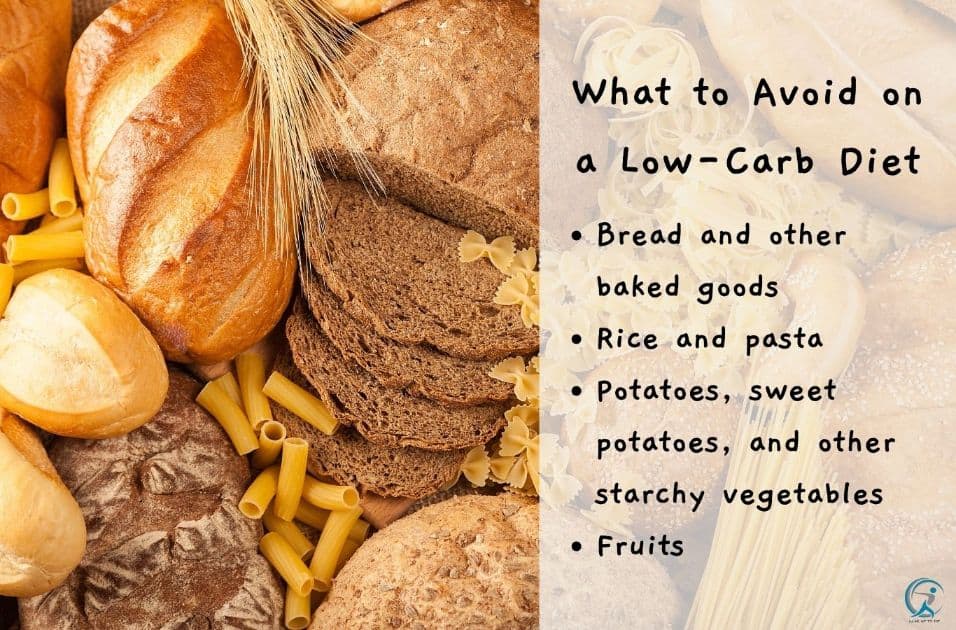
You don’t need carbs for energy. That’s bro science from the 1990s. Your body has 40,000+ calories of stored fat. Use it.
For the first 2 weeks, your running performance might dip. By week 3, you’ll have more endurance than ever. I now run 5 miles fasted every morning at 52 years old.
Meal Prep That Doesn’t Suck
Sunday prep, 2 hours max:
- Grill 5 pounds of protein Roast 3 sheet pans of low-carb vegetables
- Make a huge batch of egg muffins
- Prep salad ingredients
Done. You’ve got grab-and-go meals all week.
The Social Situation Solution
“But what about eating out?” Stop making excuses. Every restaurant can make you:
- Steak and vegetables
- Burger without the bun
- Salad with grilled protein
- Eggs and bacon (breakfast anytime)
If someone judges your food choices, they’re not your friend. Period.
Your First 30 Days: Day-by-Day Breakdown
- Days 1-3: Eat all the fat and protein you want. Just cut the carbs.
- Days 4-7: Start tracking macros. Dial in your portions.
- Days 8-14: Add strength training. Keep it simple.
- Days 15-21: Introduce HIIT training Start with 10 minutes.
- Days 22-30: Fine-tune based on results. Add supplements if needed.
The Bottom Line
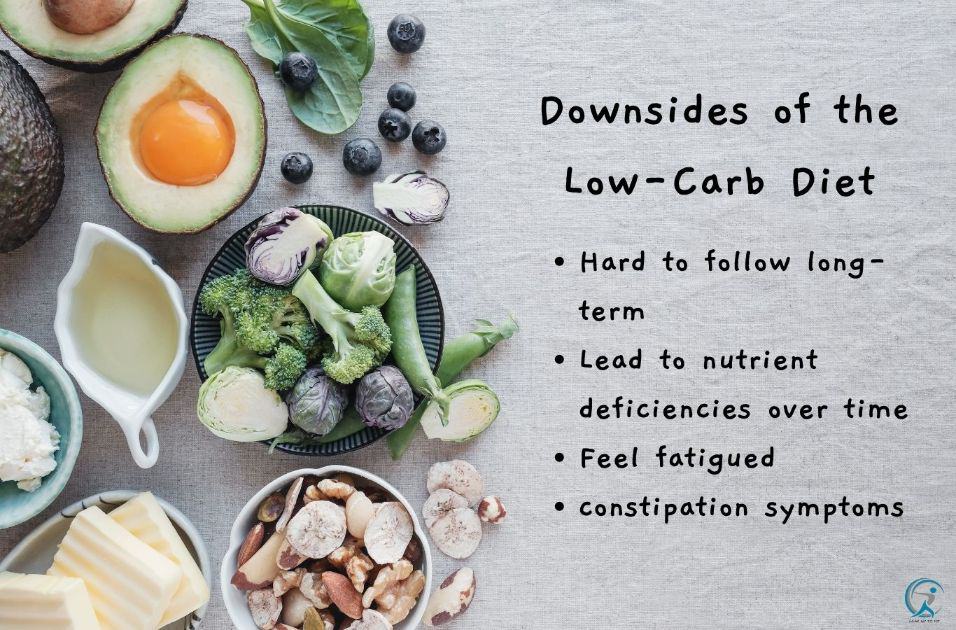
The low-carb diet works because it aligns with human biology, not against it. You’re not meant to eat processed garbage 6 times a day. You’re meant to burn fat for fuel, have stable energy, and feel like a champion.
Stop overthinking. Stop researching. Start doing.Your metabolic health is waiting. Your energy is waiting. Your lean body is waiting.The only question is: How badly do you want it?Take action today. Not tomorrow. Not Monday. Today.
Because every day you wait is another day you’re choosing to stay exactly where you are.And if you’re reading this, that’s clearly not where you want to be.